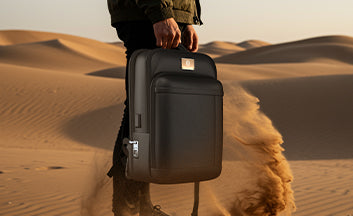Are You Carrying Cash and Coins? Wallets: Are They Still Popular?
Wallets: Are They Still Popular?
Wallets are a necessity for many people. They keep our money, cards, and other items safe and organized. But with the rise of digital payments, are wallets still popular?
The answer is yes! While digital payments are becoming increasingly popular, wallets are still a staple item for many people. And with new styles and designs, there are plenty of options to choose from.
People are increasingly preferring to go cashless. As a result, owning cash-and-coins is becoming the latest personal monetary policy statement among currency experts. Handling notes and coins has a distinct attraction that transcends technological advancements.
For starters, the rustle and clinking provide sensory delight. The varying sizes, textures, and designs of various denominations provide the owner with a multi-sensory experience that digital transactions just cannot match. Furthermore, whereas not carrying cash was once considered an affluent fashion statement, the converse is now true. Along with the small pleasures of flaunting your position, there is the subtle messaging that you have a strong sense of financial awareness.

Cash has a pleasing aesthetic appeal. Hold up a note, and you'll have a small, foldable piece of artwork in your pocket that goes beyond business. While coins serve as a reminder that metal is the original basis of transactional value.
One of the most popular wallet styles is the classic wallet. This type of wallet is usually made of leather and features multiple pockets for cards and cash. It's a great way to keep your items organized and protected.
If you're looking for a classic wallet, the Wallet Bot Classic from Arista vault is a great choice. This stylish wallet is made from genuine leather and features four card slots and two cash pockets. It also has a snap closure to keep your items secure. The Wallet Bot Classic is priced at Rs 5000.
For those who prefer a more modern style, there are plenty of wallets available. Many modern wallets feature RFID blocking technology, which helps protect your cards and cash from identity theft. Some modern wallets also feature a slim design, making them easy to carry and store in your pocket.
No matter what type of wallet you prefer, there are plenty of options available. Wallets are still a popular item, and they can be both stylish and functional. So if you're looking for a way to keep your items safe and organized, consider investing in a wallet.
In an increasingly digital world, many people are reconsidering their habits surrounding cash and coins. The arrival of digital payment methods and mobile wallets has significantly changed how we perform transactions. But the question remains: are wallets still popular in this era of financial technology?
The traditional wallet, a staple accessory for centuries, holds not just cash and coins but also various essentials like ID cards, driver’s licenses, and credit cards. Some might argue that the utility of physical wallets is diminishing with the advent of technological advances. Mobile payment apps, digital currencies, and contactless cards mean that many of us can now go days or even weeks without handling cash. However, must we completely overlook the enduring importance of wallets?
For many people, the convenience of having a physical wallet is still undeniable because it allows them to carry their daily essentials in one place. There’s also an emotional and sentimental value attached to wallets for some individuals. Wallets can be personalized, given as meaningful gifts, or even serve as a status symbol because of their design and material. Moreover, in certain situations, having cash and coins is still the preferred or necessary form of payment. For example, small businesses, local markets, or rural areas often rely on cash transactions.
Despite the surge in digital transactions, financial inclusion remains a significant issue globally. Many people do not have access to banking facilities, let alone digital payment methods. In such contexts, wallets holding cash and coins become indispensable. They provide a sense of security and independence, allowing people to control their finances without relying on digital infrastructure. Thus, while some may view wallets as outdated, they are still very relevant for many across the world.
Furthermore, emergency scenarios also highlight the importance of carrying some cash and coins. In the event of a power outage, network failure, or other technical issues that could disable electronic transactions, having cash on hand can be a lifesaver. Additionally, cash can serve as a backup during travel when it may be impractical to rely solely on electronic payments. Foreign countries may have different levels of technology adoption, and you might not always have access to a digital payment method that works seamlessly across borders.
It’s also important to consider the psychological impact of using cash and coins. For some, spending physical money adds a tangible element to financial transactions, which can make budgeting and tracking expenses easier. Studies have shown that people tend to spend less when using cash than when swiping a card or clicking 'buy now'. This can be a useful tactic for those looking to manage their finances better.
However, it's evident that wallets themselves have evolved to adapt to current trends. Many modern wallets now feature built-in technology such as RFID-blocking mechanisms to prevent digital theft. Some even come with tracking devices like Tile to help locate them if lost. These advancements display a remarkable blend of tradition and innovation, ensuring that wallets remain relevant in contemporary times. Designers continue to push the boundaries by creating sleek, multifunctional products that cater to the needs of today’s user. Minimalist wallets, for example, are designed to be slimmer and lighter, suiting those who prefer a less bulky option while still holding cash and coins.
In conclusion, while the rise of digital transactions has certainly influenced how many of us handle our finances, wallets continue to be an essential part of our daily lives because they offer a combination of practicality, sentimental value, and security. Even as we embrace technological innovations, the wallet’s role in carrying cash and coins remains pertinent. Whether through traditional use or adapting to modern needs, wallets are far from being obsolete and will likely continue to be valuable accessories for years to come.
In an age dominated by digital payments and credit cards, carrying cash and coins might seem old-fashioned to some. However, cash and coins still play a significant role in our daily transactions, and wallets find their place in this evolving landscape. This article dives into whether wallets still hold their popularity in a world leaning heavily towards digital alternatives.
Many people still prefer using cash and coins for a variety of reasons, despite the convenience of digital payments. For one, cash transactions provide anonymity and reduce the risk of data breaches, which can be a significant concern in the digital world. Moreover, cash helps people manage their spending as it is more tangible than swiping a card or making a tap payment.
Wallets are not just practical for carrying cash and coins; they have also transformed into fashion accessories that reflect individual style. Luxury brands and budget-friendly options alike offer a wide range of wallet designs catering to different tastes. While some may find traditional wallets bulky, others appreciate their multifunctionality and the organized way they carry essential items such as IDs, credit cards, and, of course, cash and coins.
On the other hand, the rise of digital wallets and minimalistic cardholders has introduced a shift in preference among younger generations. These digital solutions offer seamless transactions, security features, and convenience that traditional wallets often cannot match. Additionally, the global push towards a cashless society is influencing many to reconsider their use of physical currency and wallets.
Nevertheless, the transition to a fully cashless society is not imminent. Many regions and demographic groups continue to rely heavily on cash. For instance, small businesses and rural areas often prefer cash transactions due to lower transaction fees and the lack of advanced digital payment infrastructure. Similarly, older generations may feel more comfortable handling cash and coins made tangible in physical wallets.
In conclusion, wallets still hold their relevance despite the surge in digital payment methods. They offer a practical and stylish way to carry cash and coins and cater to those who value the traditional sense of security and control over their finances. While digital wallets and cardholders gain traction, traditional wallets are far from becoming obsolete.



